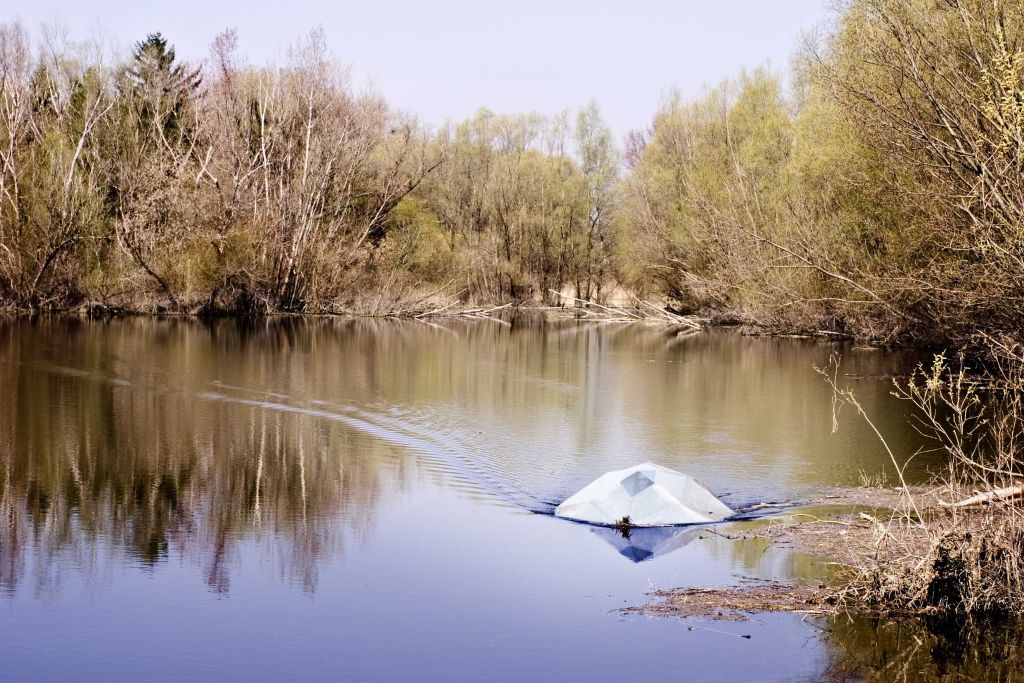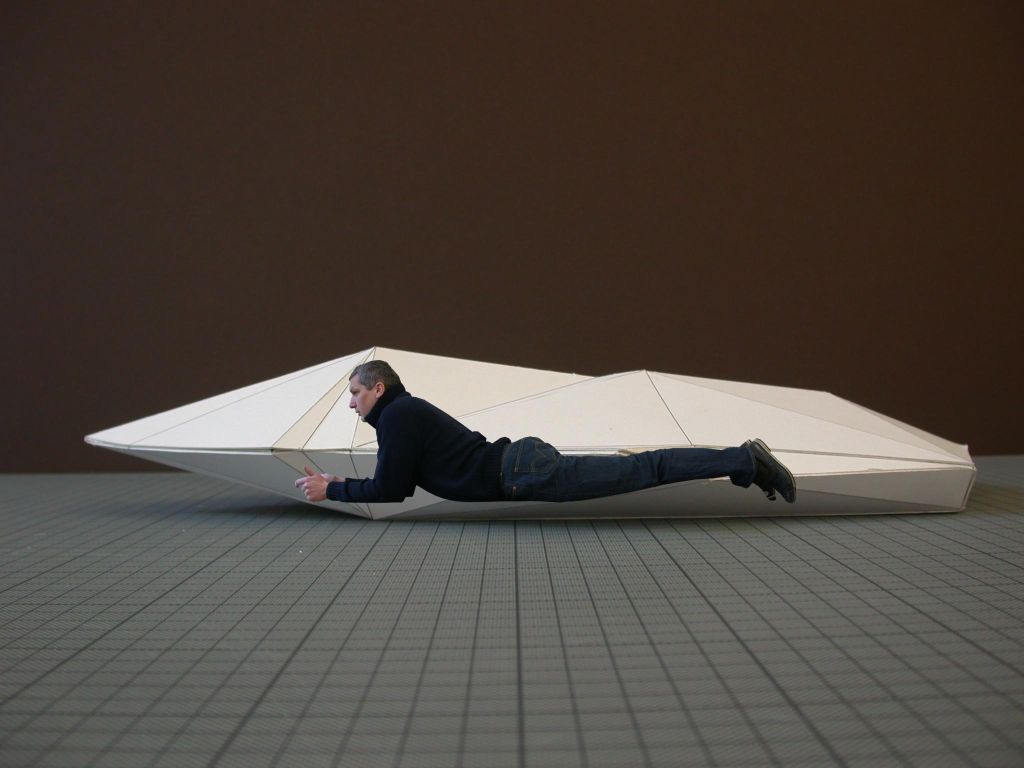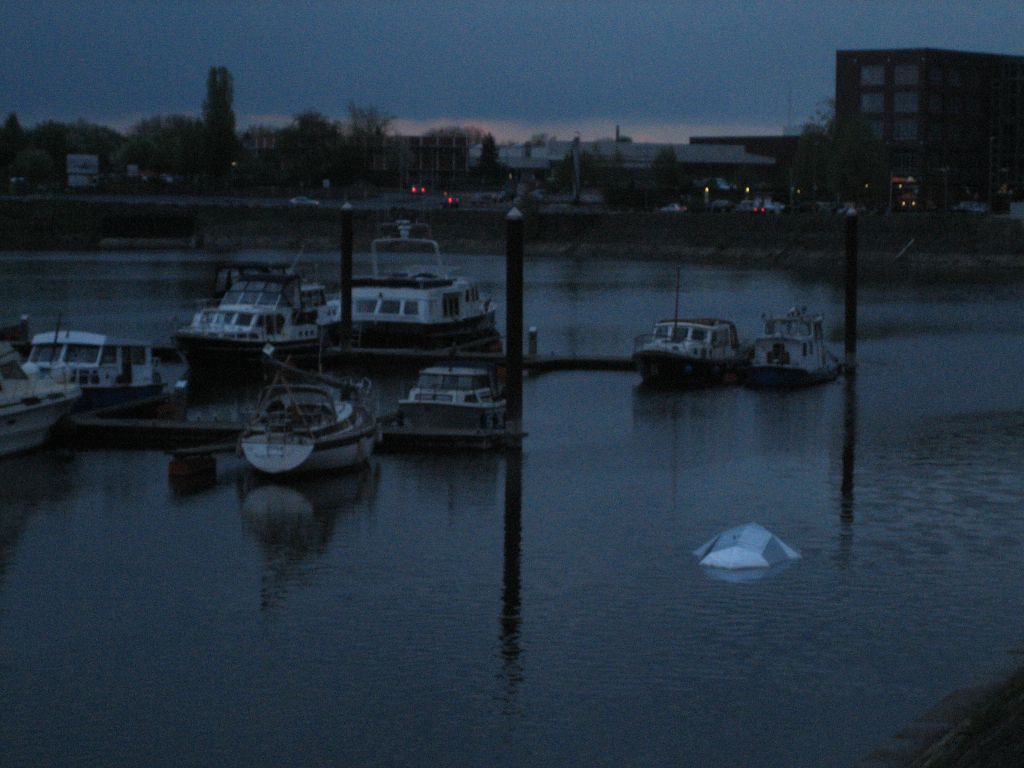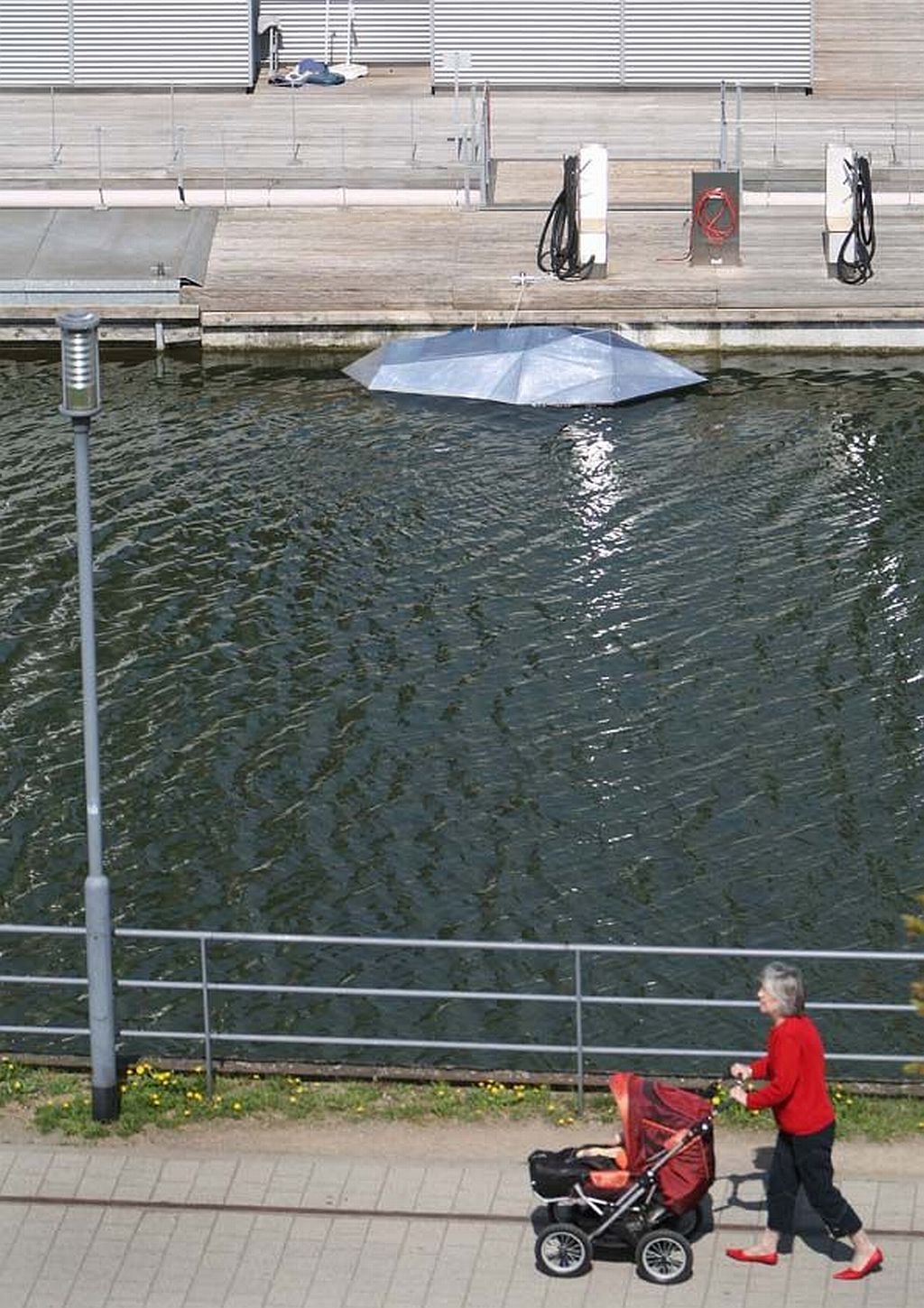Transcoding the Clandestine:
BE PREPARED! TIGER!, krcf/sandbichler 2005/2006
 .
. credit: jorit aust


Many
of the discourses on our current understanding of the public sphere start
from the assumption that the Habermasian notion of the public sphere,
which decidedly makes reference to liberal civil society, is outdated
today.' The ways in which we publicly solve conflicts have obviously changed
too much. Yet all attempts to redefine the public sphere are based on
Jürgen Habermas' reflections and emerge as a disassociation there from.
Our general understanding of the public presupposes the transformation
of the public sphere, as has been taking place since the 19605: for us,
everything that is not private (even if it seems to be dwindling) is public
urban space, which is accessible to everyone, and the space beyond the
local sphere; the translocal space of public news and opinions; the space
of media. Since the 1980s, these areas are being overlapped with a further
public sphere: that of global communication in the World Wide Web. An
increasing penetration of these public spheres means that patterns of
communication and interpretation from all of these areas will become mixed
and have a reciprocal influence on their effectiveness. The most recent
work by Knowbotic Research, which was produced in collaboration with Peter
Sandbichler, responds to these developments. It is based on the premise
that in the new, hybrid public sphere, it is less a question of the opposition
of public and private than a question of the non-public, of the secret.

The project BE PREPARED! TIGER! operates at and between several interfaces:
it manifests itself in local, public urban space in the form of a highly
artificial boat moored in Duisburg's inland harbour, where it moves from
time to time.
The
Lehmbruck Museum presents a video documentation of a journey the boat
takes through an idyllic meadowed landscape and a Web page advertising
the boat for sale. We receive a further clue at the same time: a short
video film shows two armed men sitting upright in and rowing a boat similar
to the one moored in Duisburg. The accompanying sounds produce an atmosphere
of danger and threat. The presentation in the museum is enhanced by a
further interface in Duisburg's inland harbour. The Ludwigturm, an isolated
staircase in Dani Karavan's Garden of Memories, serves as a lookout tower
from which one can see where the boat, well marked by glowing buoys, is
moored. On one of the tower's balconies, a radar unit, which is used in
shipping for orientation purposes and for locating objects not visible
to the naked eye, helps us to check our sensory impressions: The boat
that is visible to us is invisible on the radar screen. The title BE PREPARED!
TIGER! is written in large black letters on the tower's facade. It sends
us into a state of heightened attentiveness and preparedness to become
active. If we enter the interior of the tower, we hear the accompanying
sounds of the video showing two armed men in a stealth boat. An Internet
platform on the second floor advertises the boat, which is moored in the
Duisburg Marina, for sale, and on the next floor two videos are being
shown one in which the stealth boat is guided through the meadowed landscape,
and another showing the two armed men sitting in a boat. The addition
of TIGER! to the title causes us to suspect that the men are guerrillas
with the Tamil Tigers.
Both in the exhibition space of the lehmbruck Museum as well as in the
staircase tower, several medial and semantic layers overlap, creating
different contexts and sending us into a state of decoding and creating
different fields of reference. None of the fields can be identified as
the starting point, the source, the "original." The high-tech camouflage
ability of the American Stealth bomber, a myth of invisibility and invincibility,
is the semantic background for making a connection to the stealth boat
being driven by the Tamil guerrilla as well as the local version of the
boat. The Tamils model their boats on the shape of the Stealth bomber
in order to participate in the myth of the invincibility of high-financed
American military technology and thus signal power.
With the artistic act of building a replica of this boat, Knowbotic Research
create a connection between the two dissimilar "threats of force" and
at the same time attempt to create their own chain of action: their stealth
boat does not camouflage itself but has been put up for sale. It inscribes
itself in economic contexts of use and in doing so opens up different
scenarios of civilian use an entertainment/toy for weapon lovers, a status
symbol, a vehicle for transporting contra band, or a refugee boat. All
of the potential future uses have one thing in common: they contribute
to the demystification of American Stealth technology and its (supposed)
invincibility. At the same time we are moving in the decoding and mental
implementation of the correlating fields of interpretation in the newly
emerging public sphere, which in the penetration of local, translocal,
and global volumes of information necessitates altered competencies of
translating code from a variety of different origins.
1 JürgenHabermas, Strukturwandel der Öffentlichkeit, 5th ed. (Neuwied/
Berlin, 1962).
Produced Non_Public Spheres
(Kluge) are nothing else than the modern signification of that dimension
of political agency, which before the invention of the bourgeois polarisation
between public and private has been the essential opponent of the Public:
the Secret. Stefan Nowotny
produced for: PUBLICITY at Duisburger Akzente 06

credit: rainer schlautmann
> Unsichtbare Öffentlichkeiten/ Text von Felix Stalder